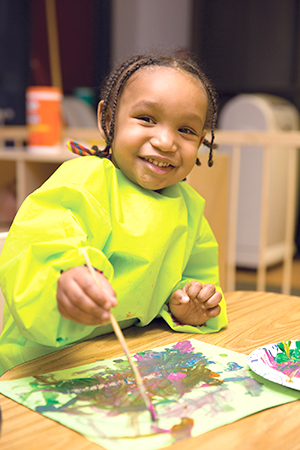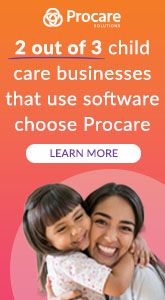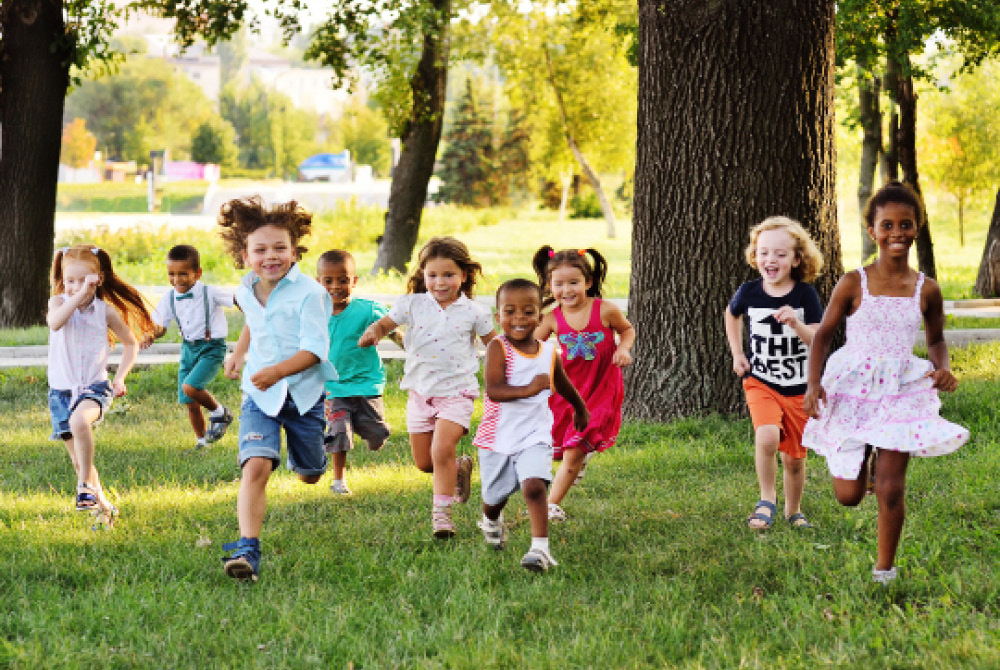This article was written as a result of the learning gained through playful work and collaboration with Mothercraft staff and partners. A special thank you goes to Alexandra Mazina, Patricia Santos, Athena Skliros and Ellen Drolette for sharing their contributions.
I would be surprised if anyone reading this article would debate either the professional joy, or the benefits to children, of engaging with them in play, as this is part of what motivated many of us to work in early care and education in the first place! Furthermore, as this edition of Exchange magazine demonstrates, there seems to be increasing worldwide interest in understanding why and how play is actually the work of young children.
Sadly, though, I have noticed that our playfulness is generally left to our time with children and rarely makes it into our adult interactions and other work tasks. This is understandable given the high levels of passionate engagement, professionalism and work ethic demonstrated in the field. We simply understand the importance and impact of what we do and, therefore, take our work very seriously—as we should.
However, as the proverb goes, “all work and no play make Jack a dull boy.” I have personally experienced, and witnessed among all types of colleagues, the negative impact of too much seriousness and not enough play. When there is no relief and the stress begins to mount, people who are usually lovely do and say things they would not otherwise. Sometimes, they leave early care and education entirely.
The opposite of play is not work, it is depression.
—Brian Sutton-Smith
So, at a time when we are beginning to acknowledge that we must be well in order to best model and support wellness in children, and perhaps even to go the distance in our chosen profession, I think there are opportunities to extend a playful approach to our adult interactions. By doing so, we can reap benefits similar to those experienced by children; enhancing and promoting our personal and collective wellness, learning and development. It may also support professional satisfaction and staff retention.
Back in 2011, Roger Neugebauer wrote a piece for Exchange titled, “Preparing Our Children Now for the Future: Five Outcomes to Pursue,” in which he outlined the importance of social intelligence, creativity, cross-cultural competence, resiliency skills and love of nature in preparing our children for an unknown future.
We understand that children learn how to interact and engage with others through play and thereby come to know more about themselves and the world. Play also provides an opportunity to release energy, build confidence and self-esteem, unleash creativity and self-regulate. It is a means of expression, enjoyment and, often, indoor and outdoor physical activity.
Play is a vehicle that propels learning and development.
—Martin & Huggins (2015)
However, if children need these skills to prepare for an unknown future and can obtain them, in part, through play, then I believe that now more than ever, educators and caregivers from across the world also need the same skills and opportunity. How are we coping with the stress of unknown futures? Are we not all being called in one way or another to learn and develop our social intelligence, creativity, cross-cultural competence and resiliency?
We are increasingly inviting play across our professional practices, as we know that it fosters the development of executive functioning and the acquisition of global competencies (Harvard University, 2019; Toronto District School Board, 2018). Some examples of executive function skills developed through play include working memory, selective attention, cognitive flexibility, and inhibitory control.
If we miss the moment, we miss the clues. In the present, when we allow ourselves to fully live there, we are restored, made wiser, made deeper and happier.
—Marianne Williamson
In our hyper-stimulating and complex world, I imagine that, like me, many of us feel challenged in trying to remain calm, happy and focused yet flexible enough in our thinking and perspectives to puzzle through and address the complex service delivery and program management issues we face. This deep personal work is my number one professional development goal and one that I actively promote in my teams and organization.
In terms of global competencies, play facilitates knowledge at three levels: knowing, acting and interpersonal values. Together these inform character, inquiry, critical thinking, problem-solving, creativity, communication, collaboration, leadership, entrepreneurship and global citizenship.
Do we really believe that character and skills stop developing after the early years? Or, do we somehow decide that learning and development once we grow up is just one more serious and solitary task to add to the long list of tasks we already have? Where did all the fun and enjoyment go? I purport that it went away when we started believing that play is only for children and we stopped doing it.
You don’t HAVE to do this. You GET to do this.
—Tom Kubis
 I am not suggesting that we all play Duck, Duck, Goose at our team meetings or use I Spy as a means of sharing information with colleagues. I acknowledge that a playful approach to our work with each other can, and should, be different than the play we engage in with children. Also, I am aware that we come with an adult bias on this topic. Take a moment and reflect on what “playing games” means when used in the adult and professional context. It infers interpersonal manipulation, wasting time, general unethical behaviour and negative self-identity, such as “being a player” or “playing the victim or martyr.”
I am not suggesting that we all play Duck, Duck, Goose at our team meetings or use I Spy as a means of sharing information with colleagues. I acknowledge that a playful approach to our work with each other can, and should, be different than the play we engage in with children. Also, I am aware that we come with an adult bias on this topic. Take a moment and reflect on what “playing games” means when used in the adult and professional context. It infers interpersonal manipulation, wasting time, general unethical behaviour and negative self-identity, such as “being a player” or “playing the victim or martyr.”
How can we really understand, value and facilitate child development through play with these kinds of beliefs about where it eventually leads? Do we not risk inadvertently giving the wrong message if we do not accept the responsibility of maintaining a playful approach in all aspects and times of life?
We can also bring anti-play biases to our professional expectations. Play is messy. There is no need to ruin our work clothes, but we may want to check our approach to conflict, personal and collegial performance and minor mistakes. Are these accepted and used to creatively problem-solve or are they ignored or met with annoyance and frustration?
Play is also a process that involves others and not just a result or product, so we need to pay attention to relationships as much as results. Are our meetings and interactions always about serious concerns and plans and solving issues? Do we really know and accept one another, and care for each other’s well-being? Does everyone feel as though they belong and can share?
In my small corner of the globe, we have a play-based pedagogical approach that focuses on belonging, engagement, well-being and expression that, along with observing children’s play, has helped me to think about how to recognize the signs of positive play behaviour in both children and adults (Ontario Ministry of Education, 2014). I have concluded that positive play that promotes learning and development is inclusive, focused, creative and innovative with lots of singing, dancing, drawing, planning, building and storytelling. Additionally, participants display clear signs of well-being such as laughter, smiling, increased risk taking, and enhanced communication and conflict resolution.
I recently learned that toddlers laugh, on average, 40 times each day. Adults, however, average only 18 times. Also, as a species, we seem to laugh 30 times more often when in a social context than when alone (Canadian Broadcasting Company, 2019). If we accept that a sign of a playful approach is laughter then, apparently, it is all about relationships and communication. The issue becomes how willing we are to risk sharing a different side of ourselves.
Do we still laugh, sing, dance, and tell our stories with each other when the children aren’t around?
—Glory Ressler
That sounds a bit scary and you may be wondering why you should take the leap. First of all, who did not somehow play as a child? This suggests that playfulness is within all if us, even if we put it aside on the job. Also, here are some of the benefits of developing a more playful approach at work. Play:
Promotes individual and collective wellness, learning and development.
Keeps us in check and accountable by further practicing what we preach.
Releases endorphins, which decreases stress and allows us to be more fully present and focused.
Supports relationship-building as we learn and appreciate more about each other and build team cohesion.
Enhances communication and collaboration and creativity.
Makes the workplace fun and enjoyable, releasing stress and reducing burn-out.
There is no such thing as work-life balance—it is all life. The balance has to be within you.
—Sadhguru
None of the staff at Mothercraft College of Early Childhood Education work directly with children so we rarely, if ever, have the opportunity to play with children. As a result, it is even more important that we are playful, so that we can continue to happily, collaboratively and creatively serve the students and partners who serve children and families. We do not have much extra time or resources for play either, so below are some of the easy, no-cost and low-cost ways we have been enhancing our work through a playful approach. I challenge you to use your imagination to identify playful things you can do in your context.
- We encourage staff creativity and expression by having staff decorate their own name buttons on the central scheduling board and we provide adult colouring books and pencil crayons, brain teasers and puzzles in the staff lunch/break room.
- We look for informal, quick and fun ways to connect and chat, such as telling funny stories, and occasionally taking a moment to select a daily fortune or inspirational quote and sharing what it means to us.
- We encourage learning new skills through activities such as cooking demonstrations and greeting card making classes.
- We provide opportunities to share our time, interests and skills by eating snacks and meals together, developing an easy and healthy dinner ideas binder with take-home recipe cards, leading fitness and yoga classes over lunch, and calling for random dance breaks.
- We plan interactive and playful team-building activities including escape room events, silly costume photo opportunities, creative information sharing challenges, and drumming circles.
My experience has taught me that when we spend even a little bit of time encouraging play at work, we reap the benefits personally and in our programs and services. We are happier and more relaxed, focused, creative and fully engaged at work. We more readily share our passion and expertise, communicate effectively, and learn and innovate together. Together, we can make the world a better place—one small child at a time—and enjoy the process. I am honoured and excited to have the privilege of “playing on” with all of you.
References
Exchange Every Day. (2011). Preparing Children for Their Future. Retrieved from https://www.childcareexchange.com/eed/news_print.php?news_id=2932
Center on the Developing Child at Harvard University. (2014). Enhancing and Practicing Executive Function Skills with Children from Infancy to Adolescence. Retrieved from https://developingchild.harvard.edu/resources/activities-guide-enhancing-and-practicing-executive-function-skills-with-children-from-infancy-to-adolescence/
Toronto District School Board. (2018). Global Competencies in Deeper Learning Environments Enabled by Pervasive Digital Technologies: Evolving Framework for Theoretical Foundation and Developmental Evaluation. Retrieved from https://www.tdsb.on.ca/Portals/research/docs/reports/DLGCDFFramework19Mar18.pdf
Ministry of Education, Ontario. (2014). How Does Learning Happen? Ontario’s Pedagogy for the Early Years. Retrieved from http://www.edu.gov.on.ca/childcare/HowLearningHappens.pdf
(March 3, 2019). Laughing and Crying. Nature of Things. Canadian Broadcasting Company.
Glory Ressler has been working in early learning and care for over 25 years. She co-developed and managed a province-wide, post-diploma program based on mentoring and has consulted on leadership and collaborative system planning projects in various communities across Canada. Ressler has presented internationally and is a published author. As director of education, training and data at the Canadian Mothercraft Society, Ressler oversees the Mothercraft College of Early Childhood Education, as well as the Community Data Group. She is the Canadian national representative to the World Forum on Early Care and Education, a World Forum Foundation Board mentee, and was named an exceptional master leader by Exchange magazine. Ressler is passionate about helping others translate knowledge, research findings and service data into best practice and evidence informed plans. She believes that, together, we grow as professionals and change the world for the better.
Related
ADVERTISEMENT










